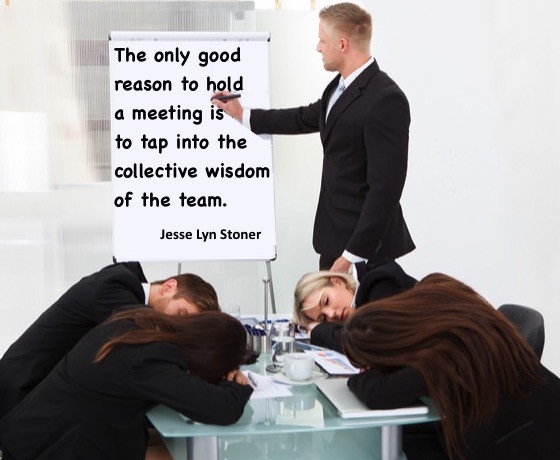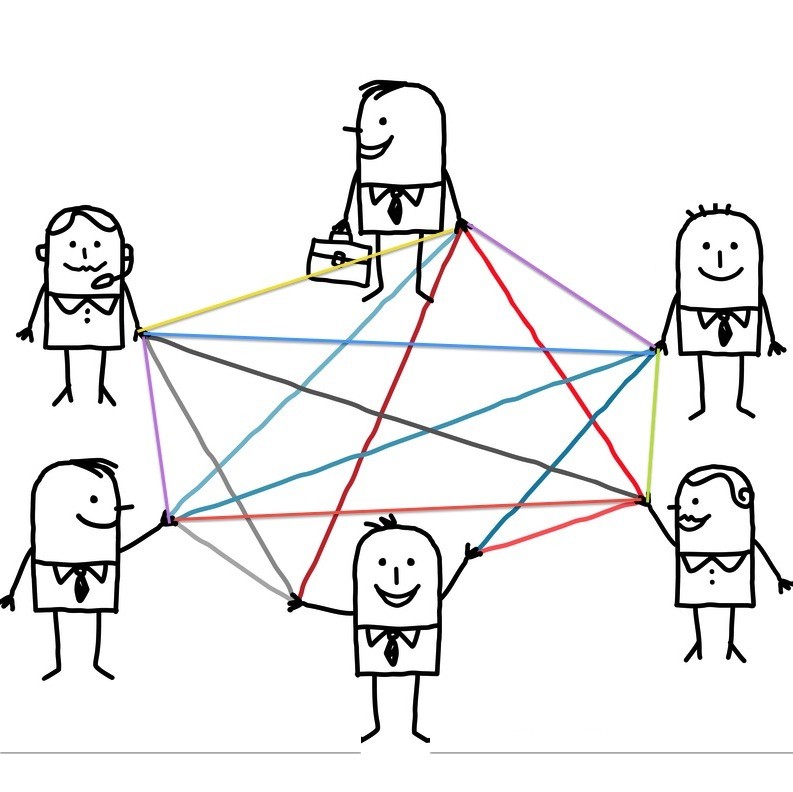 Most managers spend about 35% to 50% of their time in meetings. And most team members report it is a waste of time. This is because they are meetings that don’t matter to anyone other than the team leader.
Most managers spend about 35% to 50% of their time in meetings. And most team members report it is a waste of time. This is because they are meetings that don’t matter to anyone other than the team leader.
Although it is not clearly stated, the purpose of most meetings is to share information, primarily with the team leader.
Here’s what usually happens: one at a time each person reports what is happening in his or her area. The team leader asks some questions, but there is little real discussion among the team.
You don’t need a team meeting to share information.
Do you need to coordinate work?
Instead of holding a meeting, consider some of the many excellent project management tools. Holding a meeting to keep people informed is not a good reason to meet.
Do you want to keep track of how your team is doing?
Consider holding individual one-on-one meetings with your direct reports, which allow you to really connect with and support them, instead of gathering them for a series of boring report outs that don’t benefit anyone other than yourself.
Stop holding meetings that put people to sleep and hold meetings that matter.
Meetings that matter focus on conversation.
If the flow of energy is only going in one direction – either toward one person who is doing all the talking or toward one person who is the only one listening – you are not having a conversation.
When a team is holding a real conversation, everyone is engaged and the energy flows in all directions.
The only good reason for a team to meet is to build and tap into collective wisdom.
Seven things that happen at meetings that matter:
1. Making joint decisions using everyone’s best thinking.
2. Working together on things that cannot be accomplished as well when working separately.
3. Utilizing each other’s expertise.
4. Creating a common perspective – everyone hears the same thing at the same time, answer questions and create shared meaning.
5. Creating a big picture view beyond each person’s individual area of responsibility.
6. Creating and maintaining alignment – ensure a shared vision (purpose, values and destination).
7. Strengthening relationships and increasing trust.
If none of these things are going to happen at your meeting, cancel it.













Jesse, we all operate on 2 levels; core human behaviour and the more superficial level of employee/ business colleague. Meetings run into problems when you assume that employee-ness is the more dominant/ more important/ more impactful level than human-ness level.
I can tell you believe employee-ness is the dominant behaviour because your first 5 deal with that stuff. #7 should be your #1.
BTW the #1 reason for corporate meetings from my experience, and from the human perspective, is that they are an opportunity to express your level of status within the group…. to show everyone else how clever you are/ I’m invited so I must be important/ to reaffirm just who the boss is/ to disseminate the information that I think is important…
That’s a good way of describing the difference between true human connection and the barriers we set up to stay within a role. I did not put my list in any particular order, but you’re right that I think “employee-ness” is the dominant behavior in most organizations. I believe that people get attached to their roles because they feel safer, but when a group of people move beyond their roles and assumed boundaries, amazing and wonderful things start to happen. Much thanks for your insights, Mark!
Excellent reminders Jesse! Excellent article for all leaders to read. We want to make sure our meetings are effective! Have an awesome week!
Great to hear from you, Cynthia!
What tips do you have for trying to implement this process from the employee side? We often call our meetings the Jason-show since our boss (Jason) likes to soapbox….
Unfortunately it’s very difficult to implement this with your boss because of the imbalance in power structure. Because you need to consider organizational politics, which are different in every organization, I suggest seeking the advice of someone you trust who will hold your concerns in confidence and who can advise you on your specific situation.
Meetings are for lazy leaders. Instead, try leading by walking around. You will find a greater depth of the issues facing your.
There is much that can be said about going to people instead of asking them to come to you. And indeed, when meetings are driven by the leaders ego, they are a waste of time. However, when a meeting brings a group of people together to think together and make decisions together, they can make smarter decisions because the collective wisdom is greater than what any one individual holds.